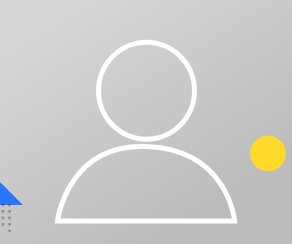Amy Paris, Ph.D.

Amy Paris
Senior Chemical Engineer
Eastman Chemical Company
B.S., Chemical Engineering, and
Ph.D., Chemical Proces Safety, University of Arkansas, Fayetteville
Amy Paris works in the Kingsport, Tennessee headquarters of Eastman Chemical, where she leads projects to develop new products/processes and improve existing ones. Paris earned her Ph.D. in 2008, with research that focused on an experimental program to predict initial velocities of aerosol jets.
After participating in an on-campus interview with a representative from Eastman Chemical, she was offered a position as a pilot plant engineer. Paris recalls that the opportunity gave her experience in building some rather complex pilot-scale units from the ground up, and she fell in love with the work. Later, she was offered the opportunity to transfer to the Kingsport facility, where her job is to take ideas developed by the research department, do additional lab work, and then scale them up for testing in continuous operation conditions.
Paris finds her works interesting and challenging. Serving in her current role since 2011, she interacts on a day-to-day basis with a wide variety of people throughout her organization, including researchers, technicians, mechanics, operators, and fellow engineers, as well as business unit, marketing, and executives. In addition to her knowledge of chemical processes, she relies on a broad variety of skills, including problem-solving and written and oral communication.
Have fun, work hard, and don’t pass on a good opportunity — even if it isn't what you think you want at the time.
Typical day on the job:
I spend about 45% of my time in our lab/pilot facility, 20% planning/designing experiments, 20% managing projects/teams, and 15% in meetings.
Work environment:
In my area, we have three groups: process chemistry, where I work with colleagues who are chemists and chemical technicians, and two engineering development groups. These three groups share the same lab and pilot plant facilities, as well as various equipment and resources. We also each have our own individual work areas and hood spaces.
Work schedule:
I generally work 40 hours a week. It’s a fast-moving environment, but a fun, relaxed atmosphere where collaboration is encouraged.
Travel schedule:
I am not required to travel.
What you like most about your job:
The ability to innovate and bring new ideas to fruition, my work designing lab and pilot scale units for scale-up, and the diverse teams I work with. I also get to physically do my work on a small scale, which makes it easier to see where problems occur and how to fix or tweak the process to get the desired result.
Best productivity trick:
Know your goal and find creative ways to get there. Because I can actually “reach in” to the process I’m working on, I can get creative and make changes, try different parameters, and use trial and error to find a workable solution.
Best career advice you’ve received:
Have fun, work hard, and don’t pass on a good opportunity — even if it isn't what you think you want at the time.
Skills or talents that make you a good fit for your job:
Creativity, adaptability, and good communication. A lot of people at Eastman support specific processes or products. In my role, I’m more of a utility-type person, working on any process that comes through that doesn’t fit in a standard area, or that might be harder to nail down in terms of its value proposition. So I have to be ready to handle a broad variety of projects. It’s sometimes a little tricky, but definitely keeps life interesting, and lets me see a lot of different things going on within the company. It also means that I have to be able to communicate with people all the way from technicians, mechanics, and operators to fellow engineers and even the executive team.
Essential habit you wish you’d started earlier:
The ability to see the big picture and understand how my work affects the company as a whole, and not just me and my area.
How you've benefited from being an ACS member:
I got involved with the ACS when I was a freshman, through the ACS Scholars Program, which provides monetary and mentoring assistance to students from underrepresented groups in the chemical sciences. In my career, it has been important to have mentors and people I could talk to and look up to; in fact, I’m now on the selection committee for the program, so it feels good to stay plugged in and give back. I also participate on the ACS Women Chemists of Color (WCoC) committee. We do a lot of outreach activities to help students learn strategies for success in what has long been a male-dominated field.

